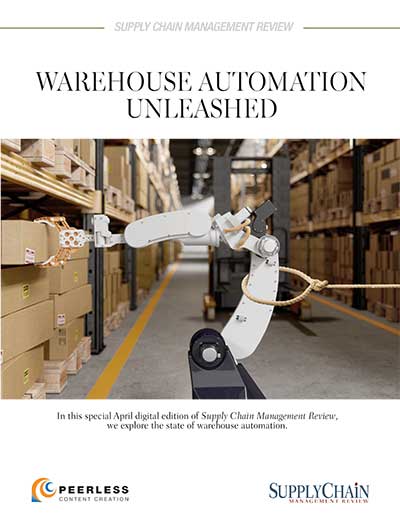Coming off of a less than 1% decline a month ago, non-manufacturing activity in May was up slightly, according to the Non-Manufacturing Report on Business, which was issued today by the Institute for Supply Management (ISM).
The index ISM uses to measure non-manufacturing growth—known as the NMI—was up 1.4% to 56.9 (a reading of 50 or higher indicates growth is occurring).
This reading represents the 112th consecutive month of NMI growth, with May's NMI down 1.3% compared to the 12-month average of 58.2.
ISM reported that 11 non-manufacturing sectors grew in May, including: Educational Services; Accommodation & Food Services; Management of Companies & Support Services; Transportation & Warehousing; Utilities; Mining; Wholesale Trade; Public Administration; Construction; Professional, Scientific & Technical Services; and Real Estate, Rental & Leasing. The three industries reporting contraction in May are: Agriculture, Forestry, Fishing & Hunting; Other Services; and Information.
The majority of the report's key metrics, including the NMI, were up in May, including:
-business activity/production was up 1.7% to 56.9, still growing for the 118th month in a row;
-new orders were up 0.5% to 58.6, still growing for the 118th consecutive month;
-employment was up 4.4% to 58.1, growing for the 63rd consecutive month;
-supplier deliveries grew to 49.5 (a reading above 50 indicates contraction), reversing a 40-month run of declines;
-prices decreased 0.3% to 55.4 and showed growth for the 24th consecutive month; and
-inventories rose 2.5% to 54 growing for the second straight month
Themes in the report submitted by ISM member respondents focused on various topics, including things like the impact of tariffs (this report was researched and compiled prior to last week's development regarding U.S. tariffs on Mexico, the general economy, and staffing, among others.
“Economy is good and it’s showing in our weekly sales, tariffs are affecting some, but doesn’t seem to matter. Our prices are up as well as costs, but sales are good,” observed an Accommodation & Food Services respondent.
ISM Non-Manufacturing Business Survey Committee Chair Tony Nieves said in an interview that while the NMI's 56.9 reading still trails the 12-month running average, it bears repeating that the 12-month running average includes the carry-over from the latter part of 2018, which featured strong growth and somewhat inflates the average over a 12-month period.
“That is OK, though, because we still had good slow and steady incremental growth that is sustainable without having large upticks,” he said. “Business activity was strong and is indicative of what our respondents are telling us, and new orders also serve as a leading indicator of strength. Employment was surprising to see that kind of growth, given a restrictive labor pool and toughness companies are experiencing in their hiring of people…which is a cycle thing in the 30-to-90-day range or longer.”
Looking at supplier deliveries, which contracted for the first time since December 2015, Nieves said that even with the capacity constraints for trucking in the past, in addition to slow rail service, that has been offset by waning demand and increased inventories and backlog of orders (down 2.5% to 52.5 in May and growing for the 17th consecutive month), which shows how interrelated those indexes are.
On the pricing side, Nieves said they are showing the ongoing impact of low inflation on the economy, with most of the non-manufacturing prices geared towards labor and fuel, the latter of which has seen declines of late.
“It is a very good report over all and weathered the storm more so than manufacturing,” he explained. “The reason for that is this index is eclectic, like a diverse stock portfolio. Keep in mind manufacturing has always been a bellwether for what is going on in the general economy, as it leads in and leads out of recessionary periods. I think that right now the only potential headwinds relate to trade, war, and geopolitical things going on. Putting those things aside, consumer confidence is up, discretionary spending is up, and the employment rate and inflation are low. These are all things that bode well for an over all economy.”
SC
MR

Latest Supply Chain News
- Tech investments bring revenue increases, survey finds
- Survey reveals strategies for addressing supply chain, logistics labor shortages
- Israel, Ukraine aid package to increase pressure on aerospace and defense supply chains
- How CPG brands can deliver on supplier diversity promises
- How S&OP provides the answer to in-demand products
- More News
Latest Resources

 Explore
Explore
Latest Supply Chain News
- Tech investments bring revenue increases, survey finds
- Survey reveals strategies for addressing supply chain, logistics labor shortages
- Israel, Ukraine aid package to increase pressure on aerospace and defense supply chains
- How CPG brands can deliver on supplier diversity promises
- How S&OP provides the answer to in-demand products
- AI, virtual reality is bringing experiential learning into the modern age
- More latest news
Latest Resources

Subscribe

Supply Chain Management Review delivers the best industry content.

Editors’ Picks




